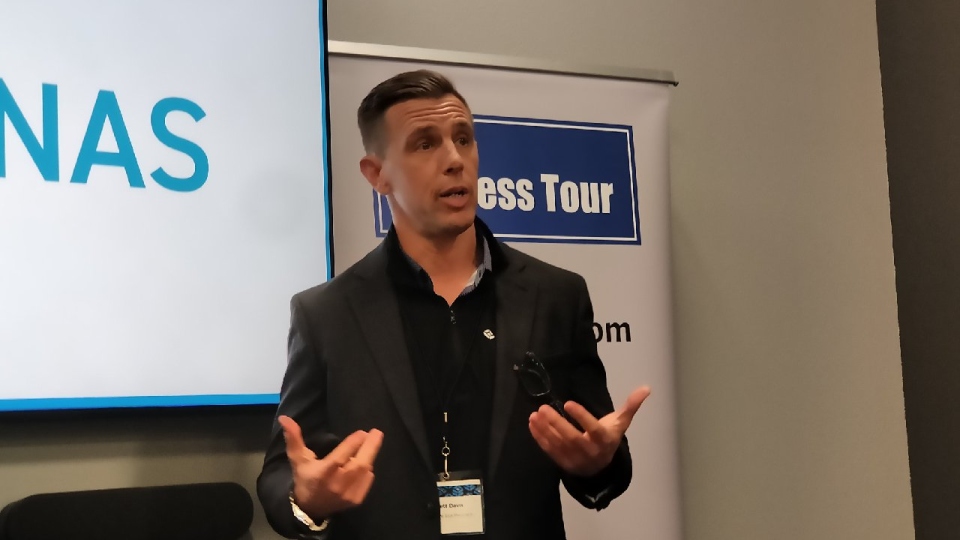
Startup Quesma offers innovative proxy services to help service providers and enterprises to get the best out of their databases and data lakes.
The company raised $2.5m in funding in November 2023 from Inovo and Heartcore, and is said to have 17 deployments so far, but not all of them are commercial. While the company is incorporated in Delaware, the US, its operational headquarters is located in Warsaw, Poland, and it employs 8 in total around the world.
Jacek Migdal (pictured), CEO and founder, told us: “We provide a transparent proxy between your applications and databases, providing interoperability, testing, and new query capabilities.
“We allow you to use a rich Elastic ecosystem with an efficient data warehouse. Elasticsearch is designed for Google-style searches, but over 65% of the warehouse use case share is for observability and security. It’s expensive to maintain and 20 times slower than ClickHouse.”
To explain, Quesma says it has built a gateway between Elasticsearch EQL and SQL-based databases, like ClickHouse, and claims EQL users can use it to access faster and cheaper stored data sources.
EQL (Elastic Query Language) is used by tools including Kibana, Logstash, and Beats. Structured Query Language (SQL) is the 50-year-old standard, originally developed by IBM, for accessing relational databases.
The company allows users to carry on using Elastic as a front end, while translating EQL requests to SQL, using a dictionary generated by an AI model, we were told.
One use case is G&L Systemhaus. It provides high-quality streaming video, for high-profile events such as German football matches. With spiky traffic, and the need for real-time visibility from huge volumes, service provider Hydrolix partnered with Quesma to deliver quality of service.
The partnership with streaming log data lake firm Hydrolix, which produces a ClickHouse-compatible data lake, began in October 2024. Quesma allows Hydrolix customers to continue using EQL-based queries, redirecting them to the SQL used by ClickHouse.
Quesma basically enables customers to avoid difficult and costly all-in-one database migrations, and instead do gradual migrations instead.
Another Quesma use case is a “major European telco”, which had a problem with monitoring and troubleshooting network quality. Even though it ran a “very costly system”, it “could not keep up”, and lower productivity was the result, Migdal said.
The solution there is a Quesma deployment in an air-gapped data centre.
Major travel broker trivago is another company that is using the system. With a complex, large-scale system with many integrations, it was “proving costly to run”, and it was “underperforming”, said Migdal. The solution here is Quesma running with ClickHouse.
The go-to-market for Quesma is through GitHub, its website, conferences, and new database vendors, and, increasingly, managed service providers like Hydrolix.
The pricing model is varied. The software can be bundled with the services provided by MSPs to end customers, or it can be priced at $30 per terabyte (TB) per month of storage, along with other price configurations.
Migdal said: “The OEM model is ideal for us. We are a software vendor startup, not a software services vendor or system house. Although some customers want help from us sometimes, ideally, the likes of Hydrolix dealing with the services side would be the perfect scenario. We just want to sell the software.”







